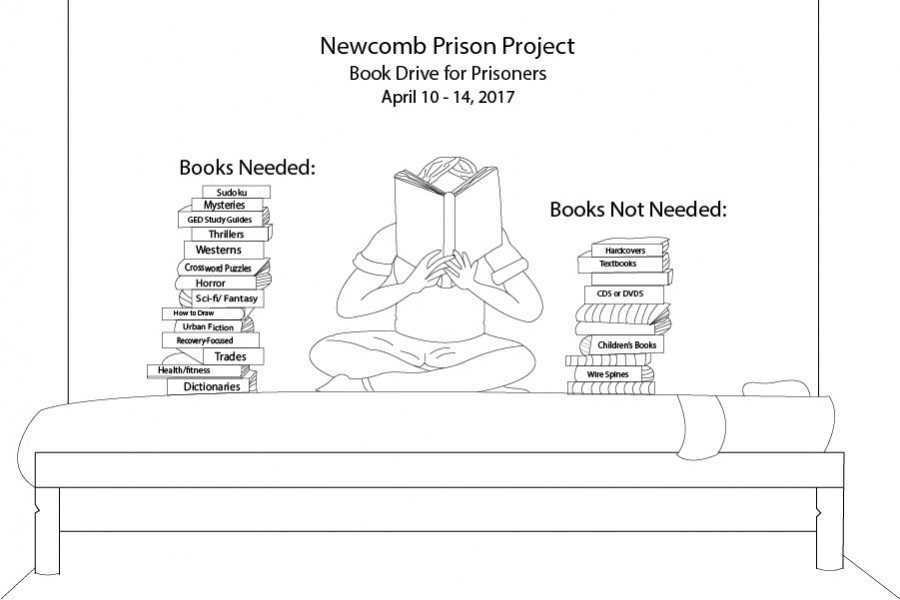On-campus book drive seeks to provide support, education to local prison population
For students who have shelves piled high with books that they will no longer need after this semester, the Newcomb Prison Project’s upcoming book drive provides a way to get rid of old books while also helping to support local prison populations.
The book drive will take place between April 10 and 14 with donation boxes in academic buildings and residence halls. The drive is sponsored and organized by the Newcomb Prison Project, an on-campus organization that “provides educational opportunities to engage students, staff, and faculty in issues related to prison and criminal justice reform,” according to the Newcomb College Institute website.
In Louisiana, a state that imprisons more people per capita than any other state or country, the prison system is a point of contention. The Newcomb Prison Project emphasizes the role that Tulane students and community members have in engaging with the prison reform discussion.
“It’s important to start on campus and look at the ways that we are complicit in the system of mass incarceration as individuals and as a campus community in order to advocate for reform and positively contribute to the lives of people that are directly impacted by this system,” Newcomb Prison Project sponsor Annie Freitas said.
In an effort to further its mission and get the Tulane community involved, the club decided to partner with Louisiana Books 2 Prisoners.
“When brainstorming one meeting how to get involved in supporting [our] cause we decided that supplying materials to imprisoned people … would be worthwhile,” Newcomb Prison Project Vice President Helen Lewis said. “Naturally, when thinking of educational materials to provide, the most important one we came up with was books.”
Many prisoners do not have access to educational services while in prison, a setback that can limit their employment options and ability to stay out of prison once they are released. According to the Newcomb Prison Project, education in prisons can reduce recidivism rates by more than 40 percent, and Lewis feels that the primary way to provide education to prisoners is through reading materials.
“It is important that Tulane students are aware of this book drive because donating to this cause, or being aware of the needs of prisoners and the merits of prison education in general, promotes involvement in Louisiana, and awareness of issues facing prisoners in our flawed penitentiary system,” Lewis said.
Students and others who wish to participate are encouraged to donate books including mysteries, thrillers, dictionaries, GED study guides, crossword puzzles and health and fitness literature. The book drive will not be accepting hardcover books, textbooks, books with wire spines, books with CDs or DVDs or children’s books.
The debate around prison reform may seem far removed from the daily lives of many in the Tulane community, but the Newcomb Prison Project members hope that the book drive will provide students and others a way to contribute to the conversation.
“Reading materials enable prison education, entertain prisoners, and show them that someone cares in what can be a hopeless environment,” Lewis said.
Aside from the book drive, the Newcomb Prison Project also tutors in prisons and seeks to educate others about issues relating to the experiences of women in prisons. Students who want to get involved can contact club sponsor Annie Freitas or learn more about the club on its Facebook page.
Your donation will support the student journalists of Tulane University. Your contribution will allow us to purchase equipment and cover our annual website hosting costs.




Leave a Comment